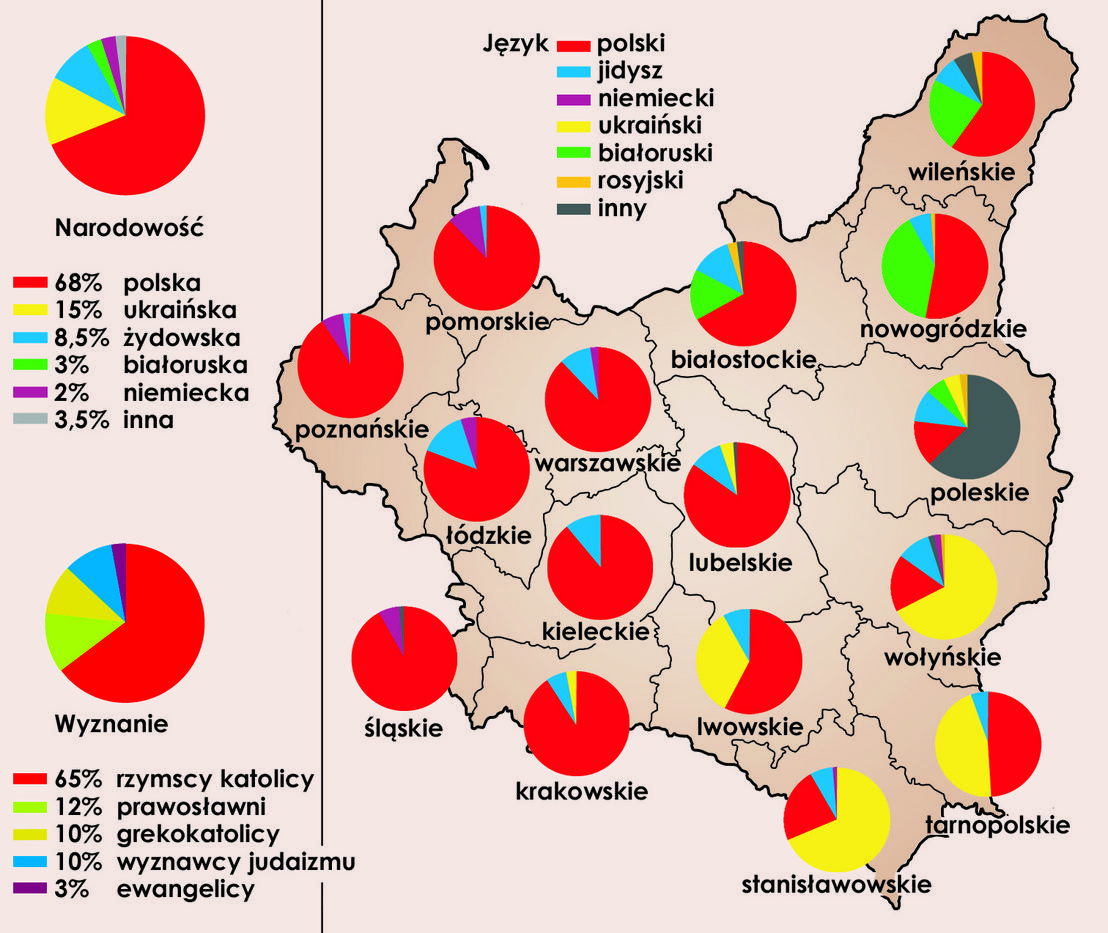[Surname] Re: Pełczyk, a surname from Greater Poland.
in reply to a message by Dorchadas
Depending on the variant, I've found quite varied meanings.
For Pełczyk: from pułk = regiment (formerly połek, połk).
For Pelczek (+similar spellings with l): from German proper name Pelz, which in turn comes from the name Balthasar or from Pelz = kożuch = sheepskin coat.
For Pilczak: from pilić (popędzać, ponaglać) = to urge, to rush or from pilny = urgent or from piła = saw.
For Pilsak: from pilśń = felt or from pilśniak = a bag made of felt.
For Pełczyk: from pułk = regiment (formerly połek, połk).
For Pelczek (+similar spellings with l): from German proper name Pelz, which in turn comes from the name Balthasar or from Pelz = kożuch = sheepskin coat.
For Pilczak: from pilić (popędzać, ponaglać) = to urge, to rush or from pilny = urgent or from piła = saw.
For Pilsak: from pilśń = felt or from pilśniak = a bag made of felt.
Replies
Wow, thank you very much for the detailed information! :D It's very enlightening to see that some of the variants that I listed are actually independent surnames on their own. This is good to know, since the names are so alike in appearance that they can easily be confused with each other. Now for me to find a way to find the parents and grandparents of my ancestor, so that I can find out which of these spellings/variants is actually the most predominant in that family! :)
I'm not sure there is a way to tell whether these were different surnames from the beginning or just created by mistake (it happens, even in more recent times - my great-grandparents had a different surname than all their children, for example).
Anyway, I used this site: http://www.stankiewicze.com/index.php?kat=44
Anyway, I used this site: http://www.stankiewicze.com/index.php?kat=44
Thank you for pointing me to the source of your information - it looks quite comprehensive, so I'll be sure to use it when I uncover more Polish surnames in my family tree! :)
It's highly unlikely that your Ashkenazi ancestors came from Greater Poland. In the map I linked, you can see the percentage of Jews by Vovoideship in the Interbellum period. Jews formed only 0,5 of the Population, as opposed to the national average of 10%. It wasn't known as an area of traditional Jewish settlement. Much of the ancestors of Greater Poles is either German, Dutch or Flemish. I'm from Greater Poland and my DNA is 23% (only my grandfather is from GP, so most of that is probably from him). My Y chromosome lineage is from the Netherlands (father's father's father, etc.) and looking at my family geneaology, there are virtually only German last-names from the Greater Polish ancestors. Greater Poland was depopulated in the late 1600's, early 1700's by wars with Sweden and various epidemics. It was settled by Bambergers (Bambrzy) who came from Franconia. There was also frequent settlement by Flemish and other Germanic settlers throughout history. This region is characteristically very Germanized (not only because of partitions) and this is evident in our heavily German-based dialect. How much of your DNA is germanic? How far back was your ancestor in Greater Poland? I could help you with any genealogy you'd like to do.
https://en.wikipedia.org/wiki/Olędrzy - German/Flemish settlers
https://en.wikipedia.org/wiki/Bambrzy - Franconian Settlers
https://kontrrewolucjablog.files.wordpress.com/2016/05/c5bcydzi_2rp.jpg?w=656 (Map of Jews by Interbellum Vovoideship I found by googling)
 (another map of interbellum demographics)
(another map of interbellum demographics)
https://en.wikipedia.org/wiki/Olędrzy - German/Flemish settlers
https://en.wikipedia.org/wiki/Bambrzy - Franconian Settlers
https://kontrrewolucjablog.files.wordpress.com/2016/05/c5bcydzi_2rp.jpg?w=656 (Map of Jews by Interbellum Vovoideship I found by googling)
 (another map of interbellum demographics)
(another map of interbellum demographics)